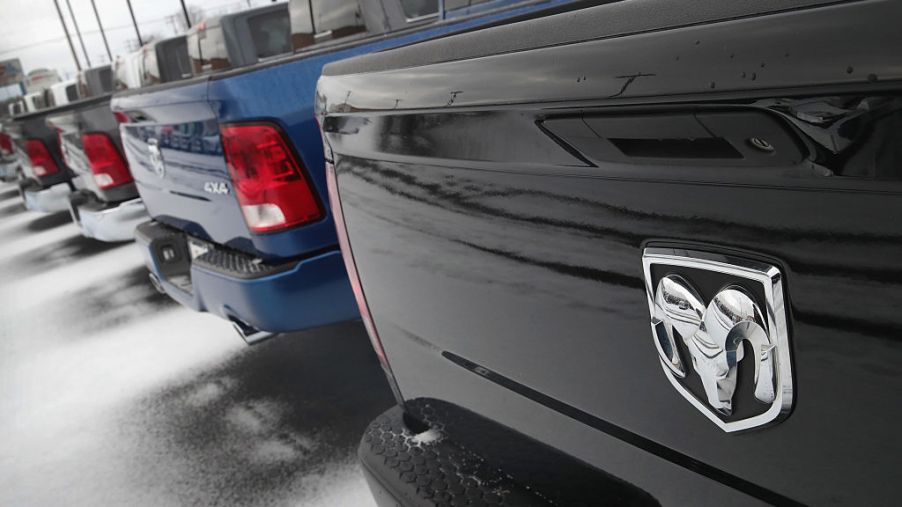
Did Ram Lie About Its EcoDiesel Engine?
In the past few years, several big automakers have been hit with diesel emission scandals. Volkswagen was implicated in Dieselgate, which was perhaps the largest of these scandals. It triggered enormous environmental, legal, and financial consequences. Renault, Nissan, and others had their own versions of emission law violations.
But Fiat Chrysler hasn’t been immune to scandal either. It’s been forced to cough up serious money in a settlement involving its EcoDiesel engine on certain Ram trucks and Jeep SUVs. As Ram fans, we have to ask: did Ram cover up the truth about its diesel engine? We’ll look at what Consumer Reports has to say and what the settlement documents reveal about it.
The Ram EcoDiesel lawsuit and its claims
In a class-action lawsuit initiated on January 12, 2017, FCA was accused of failing to follow federal and state emissions laws. It also allegedly made misrepresentations to customers about its vehicles.
As was the case with the other scandals, FCA was suspected of changing its onboard emission software to make its vehicles appear to emit less pollution than they actually did in the real world. The automaker added eight controls or software-based features that would alter the performance of the emissions system when it was tested in a laboratory. Bosch, the German parts supplier was also implicated.
The vehicles in question were model years 2014 to 2016 model years of the Ram 1500 and Jeep Cherokee that were equipped with FCA’s 3.0-liter EcoDiesel V6 engines. It’s estimated that about 104,000 vehicles were affected.
The settlement and what it means for owners
On May 3, 2019, a federal judge in California approved the settlement between Fiat Chrysler, Bosch, and the attorneys representing the owners. FCA agreed to provide cash compensation, an emissions software update and a related repair, as well as an extended warranty to the Ram and Jeep owners.
Vehicle owners have 21 months from the settlement date to submit a claim. They also have two years from that date to have the repair done and receive compensation.
People who owned an affected vehicle on January 12, 2017, and still had it as of April 15, 2019, are eligible to receive full compensation of $3,075. If a former owner of a vehicle files a claim before the current owner, the latter would receive $2,460. FCA would pay the same amount to a partial owner if the vehicle has multiple owners. Former owners, former lessees, and current lessees all would be eligible to receive $990.
Besides getting the software update, owners would need to bring their vehicles into Ram and Jeep dealerships for a small adjustment to the exhaust gas filtration system. FCA will also extend the warranty on the emissions modifications to 10 years or 120,000 miles, whichever comes first.
The automaker states that the updated software won’t negatively affect the vehicles’ fuel economy, durability, drivability, or other driving characteristics.
FCA’s settlements costs, which include owner compensation, emissions updates, and extended warranties, were estimated at over $400 million. Violation of civil penalties such as the Clean Air Act will cost FCA $305 million. For its part in the scandal, FCA supplier Bosch must pay out an additional $27.5 million.
Did FCA and Ram lie its customers about the EcoDiesel engine?
It sure looks that way, although Fiat Chrysler publicly admitted no wrongdoing and claimed that there were no findings of doing so. The carmaker argued that the original software installed in the EcoDiesel engines turned off the emissions control system under extreme conditions such as climbing steep hills. The reason for the system shutdown would be to prevent engine damage.
But it was still designed to skew lab-based emissions testing. It’s hard to believe that FCA management and engineers wouldn’t know about that programming.
And there’s a reason why FCA, Volkswagen, and other carmakers use this software. As clean-air standards have become stricter it’s been almost impossible for vehicle manufacturers to retain the low-torque power of their diesel engines and still comply with emission regulations. Being sued for noncompliance with environmental laws is a risk FCA and others are willing to take.
It’s clear that FCA and its subsidiaries Ram and Jeep got away with lying to its customers this time. Whether these customers will trust these carmakers from this point on remains to be seen.


